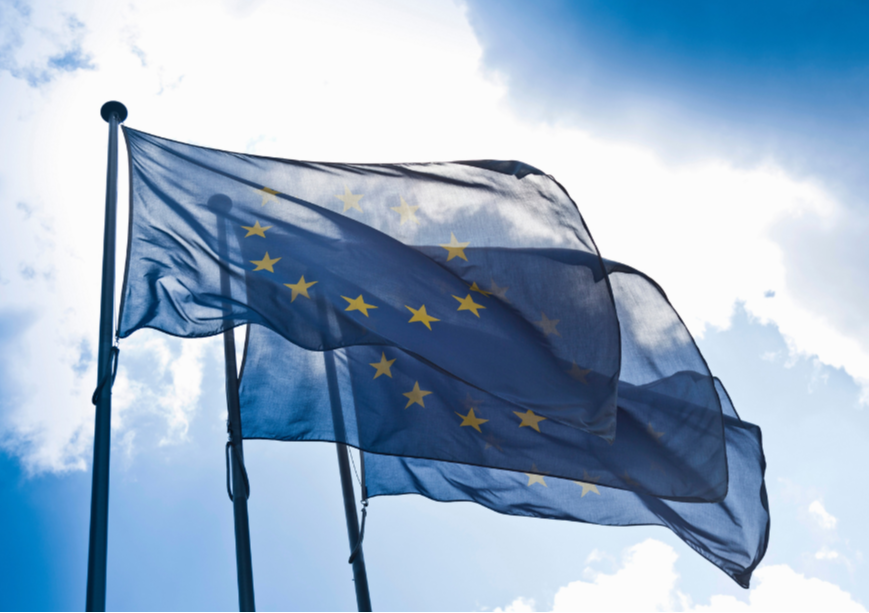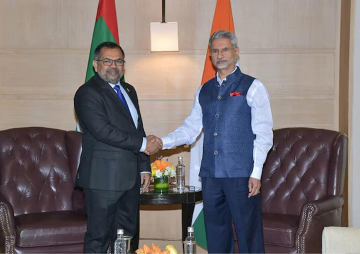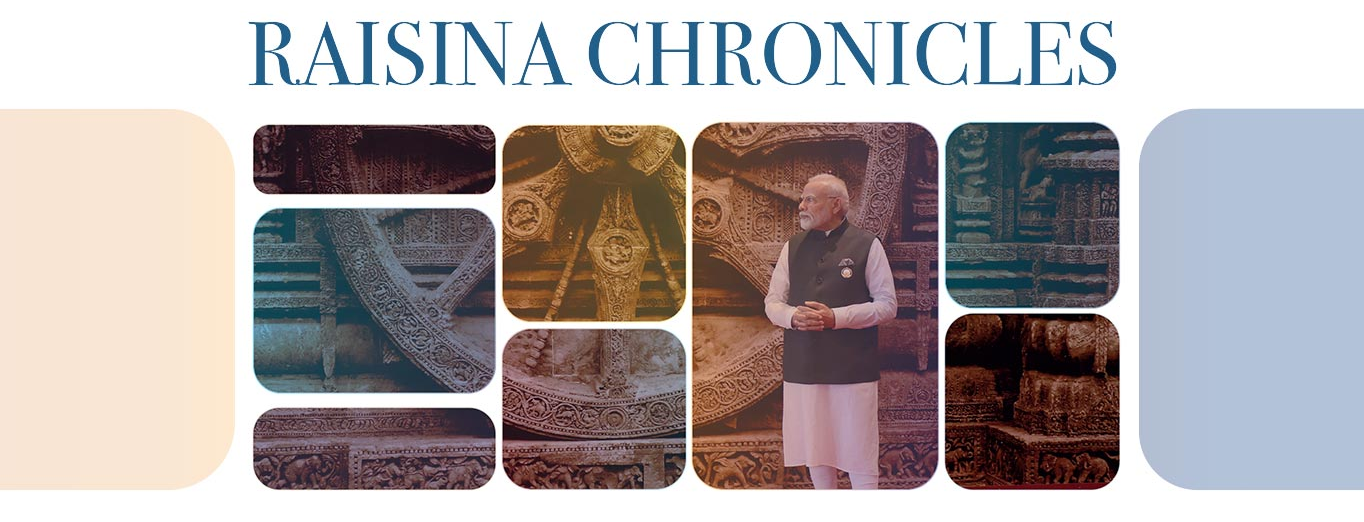
This article is a part of the series - Raisina Chronicles 2024
How appropriate the term ‘Global South’ is, has become a hotly debated matter. Merits and detractions around the definition aside, looking at the world from the perch of Brussels, the ‘Global South’ does provide one insight: It includes the parts of the world that the European Union (EU) has least engaged with.
Europe’s global footprint has been very slow in the making. The EU’s foreign policy has been overwhelmingly dealing with its so-called neighbourhood (Eastern Europe, North Africa, and the Middle East). Its most important allies are in the Transatlantic space, and it engages with the rest of the world mostly through specific prisms: trade and economics (from Canada to Vietnam, thus defying the Global South definition), governance of common goods such as human rights and climate (through multilateral institutions, including working with the G77), and development policies (still the largest donor). All its dealings with the rest of the world, and much of the analysis of its global standing, also reveal that its self-perception as a force for good often betrays mistaking itself for the world. As the Indian External Affairs Minister, Dr. S. Jaishankar, noted, “Europe has to grow out of the mindset that Europe’s problems are the world’s problems, but the world’s problems are not Europe’s problems”.
Since 2022, when the United States (US) and Europe struggled to get support against Russia’s invasion of Ukraine, the EU has started its belated reckoning with the very different views coming from the Global South. And since Israel started waging a massive war on Gaza in retaliation for the terror attack of 7 October, the gap between the Global South, overwhelmingly supportive of the Palestinian cause, and the EU seemed never as wide.
This exercise needs to be placed in the context of a dynamic international order that is shifting and adjusting to the growing USChina rivalry and multipolarity. There are challenges and opportunities for the Global South, but also for Europe.
Please read the full volume here.
Gaps in the EU’s Vision
Without wanting to capture the kaleidoscope of views from the vast Global South—which vary across geography but also between government and society, urban and rural, exposure to international politics, as much as in any country —the criticism the EU needs to reckon with can be clustered into a few categories.
The ‘double standards’ accusation is very much related to international law and the EU’s role in global war and peace. The EU’s argument about Ukraine’s sovereignty and territorial integrity was retorted with the hypocrisy over the military interventions in Iraq (supported by most but not all EU member states) and Libya (UK and France). To an extent, it can be argued that the EU is guilty by association with those leading the military interventions, but the critique bears relevance even with respect to the different responses to Ukraine when it was invaded by Russia in 2014 and Crimea annexed, and again in 2022. The hypocrisy accusation also pertains to inconsistencies towards international law when it comes to conflicts in the rest of the world.
The EU’s mantra about the rules-based order and the global commons is also questioned as one that is perpetuating global inequality. During the COVID-19 pandemic, European states could access public debt in ways that lower-income countries could not, and prioritised European citizens in their vaccination policy. In trade and climate policies, the EU stands accused of pursuing extractive diplomacy to access raw materials or to raise environmental standards to the detriment of development.
The EU’s migration and asylum policy, and the contrast between the arrival of refugees from Syria and Afghanistan in 2015 and those from Ukraine since 2022—the different treatment of white, Christian versus brown, Muslim refugees—attracts severe criticism about racialisation and arbitrary boundary-creation. The EU border control practices and its delegation to third parties, as exemplified in the infamous but not unique 2016 EU-Türkiye Deal, has put the rights of migrants and asylum seekers at peril. The recently agreed Pact on Migration and Asylum, that risks exacerbating rather than solving existing challenges, will not help the EU counter this negative perception.
All criticisms are coloured by post-colonial critiques that the EU as a whole has historically avoided addressing. Looking forward, in light of the war, a shift towards the political right across Europe and the promise to enlarge the EU and defend it against Russian aggression, a “Fortress Europe” writ large is not an unrealistic scenario, but with even more securitised borders.
All criticisms are coloured by post-colonial critiques that the EU as a whole has historically avoided addressing. Looking forward, in light of the war, a shift towards the political right across Europe and the promise to enlarge the EU and defend it against Russian aggression, a “Fortress Europe” writ large is not an unrealistic scenario, but with even more securitised borders.
Some of these critiques are influenced by the ubiquitous narrative about geopolitical competition, which is shaped more by the US and China than the EU; some are distorted by Russian and Chinese narratives about the corrupt West where liberal democracy is about to collapse. Post-colonial criticisms are often manipulated by politicians from the Global South for populistic reasons.
To be sure, the EU needs to better understand these critiques to inform policy and make amends with the past. It also needs to think more creatively about working with partners to reform the international system, which is the origin of much of the problem of global inequality and its hubris.
To be sure, the EU needs to better understand these critiques to inform policy and make amends with the past. It also needs to think more creatively about working with partners to reform the international system, which is the origin of much of the problem of global inequality and its hubris.
Recent years have seen the EU and its member states engage more than ever with India. Instead of hectoring India to explicitly condemn Russia in the aftermath of the war and conditioning further cooperation on this basis, Europe paid attention to India’s compulsions and concerns after New Delhi used its voice to speak not only for itself, but to articulate what many other nations felt. In today’s turbulent global context, the Raisina Dialogue, hosted by the Observer Research Foundation and India’s Ministry of External Affairs, has been pivotal in addressing gaps in communication and understanding between nations.
Bringing together representatives and participants from all across the so-called Global North and South, the Dialogue provides a much-needed platform for European scholars, policymakers, and thought leaders to communicate, converge and find common ground with their counterparts in Asia, Africa, and Latin America. The conversations that took place at the Raisina Dialogue last year, held against the backdrop of India’s G20 presidency and its Global South focus, were a crucial step forward in enhancing North-South empathy. By facilitating these high-level interactions, the Raisina Dialogue can support India’s ambition/intention/positioning as a ‘bridge-builder’ between the North and South.
It is an inescapable fact that addressing much of the world’s problems requires global collaboration. Arguably, Europe has not yet lost the battle of narratives in the Global South15 and can still offer a positive proposition that builds upon global commons in the interests of both partners.
Looking beyond government policy and embracing societies would be a first step. Global public opinion, for instance, is less divided on Palestinian statehood than the policies of many governments. The values of liberal democracy are still cherished by many across the globe despite their governments. The pitted Global North vs Global South is often a construct exploited for political interest, or to hedge or divide among rivals.
Looking beyond government policy and embracing societies would be a first step. Global public opinion, for instance, is less divided on Palestinian statehood than the policies of many governments.
Indeed, political leaders of the Global South too can be as transactionalist as they accuse the EU of being. Perhaps this could serve as a more pragmatic basis for relations. The recent Global Gateway initiative—an initiative that supports infrastructure development worldwide—is seen as the EU’s answer to China’s Belt and Road initiative. With an endowment of 300 billion euro (2021- 2027), it may be belated and minimalist, but not too little, too late. The EU needs to be clear about its interests, acknowledge those of its partners, and pragmatically identify what added value a partnership with the EU would offer in terms of good governance, fighting climate change, and the economic benefits for both sides.
The EU also needs to build upon the positive perceptions that exist in the Global South among many citizens, democracy and human rights activists, business communities, academics, and students, and many of those who have been engaged with EU programmes or representatives. Generously supporting the Loss and Damage Fund, as promised to the G77,17 would boost the EU’s image among global societies, not just governments. A more humane treatment of asylum seekers, such as that offered to Ukrainians, and a more liberal management of migration policy would alleviate pressure from border states, respect the dignity of asylum seekers, and reframe the EU’s policy response in a constructive light in the Global South and amongst future European citizens.
The views expressed above belong to the author(s). ORF research and analyses now available on Telegram! Click here to access our curated content — blogs, longforms and interviews.




 PREV
PREV



